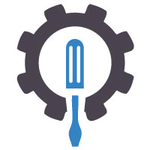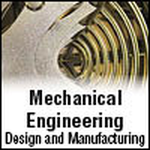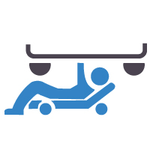
Tool Engineering Course Details - Fees, Subjects, Syllabus, Duration, Eligibility, Career Scope
Degrees offered: Diploma, M.E /M.Tech., B.E /B.Tech, B.Voc., P.G.D
What is Tool Engineering
Tool Engineering is a field of engineering involved with the planning of manufacturing processes, the development of tools and machines, and the integration of facilities necessary to produce specific products in the most efficient way possible.
Tool Engineering is a specialised field in industrial engineering and includes the design of tools, jigs, fixtures, and other related equipment, taking into account the quality and quantity of parts to be produced, the machines needed such as lathes, milling machines, etc., the space available, and the safety of the operator.
A bachelor’s degree is the minimum qualification for tool engineering.The scope of tool engineering is vast in India and other parts of the world. All manufacturing companies like automotive, laptops, mobiles, utensils hire tool design engineers. India and other countries have good colleges, institutes and faculties that provide quality education in the field of tool engineering to students.
Highlights- Tool Engineering
| Particulars | Values |
|---|---|
Branch Name | Tool Engineering |
Degree | B.E/B.Tech, M.E/M.Tech |
Duration | UG: 4 years PG: 2 years |
Eligibility | UG: 10+2 PG: Bachelor’s degree |
Admission Process | Entrance Exam |
Top Entrance Exams | JEE Main, JEE Advanced, GATE |
Average Course Fees | Rs. 12,810 to Rs. 1.26 Lakhs |
Career Options | Tool and Die Maker, Mould Maker, Tool Fitter, Jig Maker, and Tool Designer |
Average Salary | Rs. 3-4 LPA ( for Tool Designer) |
Recruiting Companies | GE Healthcare, Yamaha Motors, Toyota, Maruti Suzuki, BMW |
Top Tool Engineering Colleges in India
Many engineering colleges offer Tool Engineering courses at undergraduate and postgraduate level, the admission to these colleges is based on the entrance examinations or direct admission based on merit score. Mentioned below are the top Tool Engineering Colleges in India.
| Colleges | Fees |
|---|---|
- | |
- | |
Rs. 67,500 | |
Tata Institute of Social Sciences, School of Vocational Education, Mumbai | Rs. 1.18 Lakhs |
Rs. 54,000 | |
Rs. 12,810 | |
Rs. 1.26 Lakhs | |
Rs. 80,000 | |
Rs. 68,000 |
Top Private Tool Engineering Colleges in India
There are many private engineering colleges in India offering Tool Engineering courses. Candidates can check the eligibility criteria of the desired course on the official website of the institute or on the programme brochure.
| Colleges | Fees |
|---|---|
DSU Bangalore | - |
IERT Allahabad | - |
AWH Polytechnic College Kozhikode | Rs. 67,500 |
NV Polytechnic College Udumalpet | |
Tata Institute of Social Sciences, School of Vocational Education, Mumbai | Rs. 1.18 Lakhs |
Top Government Tool Engineering Colleges in India
Many government institutes in India offer Tool Engineering courses, government institutes provide quality education and are affordable as compared to a private college. The admission is based on the entrance examination or on any other admission criteria as specified by the institute.
| Colleges | Fees |
|---|---|
Central Tool Room and Training Bhubaneswar | Rs. 54,000 |
Government CPC Polytechnic Mysore | Rs. 12,810 |
Government Tool Room and Training Centre Dumka | Rs. 1.26 Lakhs |
Government Tool Room and Training Centre Gulbarga | Rs. 80,000 |
Government Tool Room and Training Centre Gundlupet | Rs. 68,000 |
Eligibility Criteria (UG & PG) of Tool Engineering
Eligibility Criteria for UG Courses
Institutions have specific eligibility criteria that can vary. Generally, for postgraduate courses in Tool Engineering, candidates are required to have a Bachelor’s degree in a relevant field from a recognized university, along with a valid aggregate percentage. Below are the generic postgraduate eligibility requirements for Tool Engineering:
- Candidates who have cleared class 10 and 12 with at least 60% marks are eligible to apply for tool engineering.
- The minimum pass percentage varies across institutes. Students who want to pursue undergraduate tool engineering courses should clear the JEE Advanced exam after qualifying in JEE Main.
- Other state and university-level entrance exams are also available for candidates to get admission.
- The admission process is merit-based or entrance exam-based, based on the institute’s requirements.
Top Entrance Exams for UG Courses
JEE Main: JEE Main exam is conducted by the NTA. It is a national level exam. Get admission to top institutions like IIITs, NITs, and CFTIs. JEE Main exam is held twice in a year; January and April. The mode of the exam is online.
JEE Advanced: JEE Advanced is conducted by the Indian Institute of Technology. This is a national-level exam. The exam is held once in a year for IITs. The mode of the exam is online.
Eligibility Criteria for PG Courses
Educational institutions have varying eligibility criteria. Typically, for postgraduate courses in Tool Engineering, aspirants need to hold a Bachelor’s degree in a related discipline from an accredited university, along with a satisfactory cumulative percentage. The following are the general postgraduate eligibility requirements for Tool Engineering:
- A minimum score of 50% in a bachelor’s degree is mandatory.
- Graduation must be completed from a recognized institute. B.E/BTech degree is required in graduation.
- Work experience for 1 or two years is expected by a few institutes.
- Candidates who are expecting their final year results can also apply.
- Postgraduate entrance exams are available to select candidates who fit the requirements to be granted admission into the different institutions.
Top Entrance Exams for PG Courses
GATE: GATE stands for Graduate Aptitude Test in Engineering and it is a postgraduate entrance examination in the field of Engineering, conducted by one of the IITs to provide admission to different IITs, NITs, and GFTIs. Students can find the relevant information for the GATE Examination in the table below:
College Predictors VIEW ALL
Scope of Tool Engineering in India and Abroad
Candidates who are interested in working for manufacturing industries and possessing management skills are suitable for tool engineering courses. Students who have good problem-solving skills, physically fit, are ideal for the course. Tool engineering graduates are recruited as tool designers according to specific product specifications.
Those who can plan effectively, accept huge responsibilities and be careful to give attention to detail are the best match. Furthermore, students who desire to research are also suitable. Tool engineering is essential in every domain of mechanical engineering. In companies like OEMs (Original Equipment Manufacturers) tool engineers are hired.
Mechanical belt zones like Faridabad, Ghaziabad, Gurgaon, Noida, Chandigarh, Pune, and Jamshedpur hold opportunities for tool engineers. The scope of tool designing is definitely on the rise in and out of India. Experience matters a lot in this profession and the same offers a lucrative salary for aspirants.
Students also liked:
Course Fees Tool Engineering
| Minimum Fees | Maximum Fees | |||
|---|---|---|---|---|
| Private | Government | Private | Government | |
| UG | ||||
| PG | ||||
| DOCTORAL | ||||
| DIPLOMA | ||||
Course Subjects
Tool Engineering Syllabus of PG Courses
The syllabus of Tool Engineering at postgraduate level includes subjects such as Injection Molding and Mould Design, Metal Forming and Press Tool Design, Advanced Press Tool Design and Formability Analysis, and Industrial Safety. Mentioned below is the syllabus of M.Tech Tool Engineering from Delhi Skill and Entrepreneurship University.
Semester- I | |
Injection Molding and Mould Design | Design of Jigs, Fixture, and Gauges |
Metal forming and Press Tool Design | Research Methodology and Intellectual Property Rights |
Advanced Metrology and Geometric Dimensioning & Tolerancing | Industrial Automation and Control |
Introduction to Finite Element Methods | - |
Semester- II | |
Advanced Press Tool Design and Formability Analysis | Advanced Injection Molding Processes and Mould Design |
Composite Manufacturing | CNC Technology and Programming |
Computer Aided Design | Statistical Quality Control |
Heat Treatment and Tool Materials | Advance in Metal Cutting |
Project Management | English for Research Paper Writing |
Semester- III | |
Surface Modification Processes | Die Casting and Die Design |
Renewable Energy Resources | Industrial Safety |
Industrial Pollution | Cost Management of Engineering Projects |
Internet of Things | Managerial Economics |
Business Analytics | Industrial Training |
Dissertation Phase-I/Industrial Project | - |
Semester- IV | |
Dissertation Phase-II | - |
Careers in Tool Engineering
Tool engineering graduates are in high demand across various sectors. They can find opportunities in manufacturing, research and development, and production sectors. Technology companies also offer numerous roles for these graduates. Mentioned below are the top career options in the field of Tool Engineering.
| Job Profile | Job Description |
|---|---|
Tool and Die Maker | A Tool and Die Maker fits and assembles parts by modifying jigs, dies and gauges. They also conduct tests using tools to satisfy specifications CAD software is used by tool and die maker to make necessary adjustments. |
Mould Maker | A Mould Maker makes moulds with plaster, mud, and water by following a specific formula. Mould makers also repair the damaged edges in moulds and remove extra moulding like plaster and wax among others. |
Jig Maker | A Jig Maker assembles different standard and non-standard jigs. They ensure the proper working of jigs and fixtures. Quality and accuracy are measured by the jig makers as per the requirement of the product. |
Tool Designer | A Tool Designer designs tools according to the production of the product and takes care of the lifespan of tools. They also modify the tools according to the product specifications. |
Upcoming trends
The field of Tool Engineering is continuously evolving and there are many trends and topics coming in the field of Tool Engineering. Mentioned below are some ot the top upcoming trends and topics in the field of Tool Engineering:
3D Printing
Artificial Intelligence
Automation
Digital Twinn
Job Profiles and Top Recruiters
The graduates in Tool Engineering can work in various areas such as the Manufacturing Sector, Research and Development Sector, Production Sector, and Tech Companies. Tool engineering is a rewarding career as successful graduates get hired in different manufacturing sectors. Listed below are the top recruiters in the field of Tool Engineering.
Top Recruiters:
- BMW
- Mercedes Benz
- Audi
- Chevrolet
- Tata Motors Ltd
- Ashok Leyland Ltd
- Mahindra & Mahindra Ltd
- Bajaj Auto Ltd.
Average Salary
The salary after completing a Tool Engineering course depends on many factors such as the location of the company, skills and experience of the candidate, and the job profile applied by the candidate. Average salary is the most important aspect to be surfed through before choosing a course. Average salaries for a few job roles in tool engineering are given below for reference:
| Job Profile | Average Salary |
|---|---|
Tool and Die Maker | Rs.3-5 lakh p.a. (Approx.) |
Mould Maker | Rs.1-3 lakh p.a. (Approx.) |
Tool Fitter | Rs. 2-4 lakh p.a. (Approx.) |
Jig Maker | Rs. 3-5 lakh p.a. (Approx.) |
Tool Designer | Rs. 3-4 lakh p.a. (Approx.) |
Lecturer | Rs. 5-7 lakh p.a. (Approx.) |
Researcher | Rs. 5-6 lakh p.a. (Approx.) |
Required Skillset for Tool Engineering
Candidates wishing to apply for the Tool Engineering course must have certain skills which are necessary for the course. These skills will help the candidate stand out from others and help him excel in his/her careers. Mentioned below are the skill sets required by the aspirant of Tool Engineering:
- Problem Solving
- Good Communication
- Ability to Learn
- Patience
- Technical Skills
- Hard Work
Course Curriculum for Tool Engineering
Tool engineering course involves the manufacturing of tools; designing and molding of various tools in the manufacturing industry are learned. Successful graduates of this course are selected in manufacturing companies as tool designers. The course also includes activities such as designing jigs, fixtures, die-casting designs, and advanced plastic processing.
Planning and execution of processes of manufacture and production of materials in minimal time, labour, and expenditure are mainly focused. The course trains students with relevant skills that transform them to be fit for the tool engineering industry. Diverse topics like mechanical and automation engineering, mechanical automobile, foundry, and forge technology are included in the tool engineering course.
Popular Tool Engineering Entrance Exams in India
Karnataka PGCET
Application Process: 25 Apr, 2025 - 10 May, 2025
TS PGECET
Application Process: 17 Mar, 2025 - 19 May, 2025
Frequently Asked Questions (FAQs)
Question: What is the course duration of Tool Engineering course at undergraduate and postgraduate level?
Answer :
The course duration of Tool Engineering at the undergraduate and postgraduate level is four and two years respectively.
Question: What is the average salary of Tool Engineering?
Answer :
The average salary of a Tool Engineer ranges from Rs. 3- Rs. 4 LPA. The salary depends on the location of the company, the resume and skills of the candidate, and job profile applied by the candidate.
Question: What are the popular career options in the field of Tool Engineering?
Answer :
The career opportunities in the field of Tool Engineering are endless such as Tool and Die Maker, Mould Maker, Jig Maker, and Tool Designer.
Question: What are some of the subjects taught in the course curriculum of Tool Engineering?
Answer :
Some of the subjects taught in the course curriculum of Tool Engineering are Advanced Metrology, Injection Molding and Mould Design, and Heat Treatment and Tool Materials.
Question: What are the top entrance examinations in the field of Tool Engineering?
Answer :
There are many entrance examinations in the field of Tool Engineering, depending on the level of education such as JEE Mains and JEE Advanced for undergraduate courses, and GATE for postgraduate engineering courses.
Question: What is the average salary of Tool Engineering?
Answer :
The average salary of a Tool Engineer ranges from Rs. 3- Rs. 4 LPA. The salary depends on the location of the company, the resume and skills of the candidate, and job profile applied by the candidate.
Question: What is the course duration of Tool Engineering course at undergraduate and postgraduate level?
Answer :
The course duration of Tool Engineering at the undergraduate and postgraduate level is four and two years respectively.
Question: What are some of the subjects taught in the course curriculum of Tool Engineering?
Answer :
Some of the subjects taught in the course curriculum of Tool Engineering are Advanced Metrology, Injection Molding and Mould Design, and Heat Treatment and Tool Materials.
Question: What are the popular career options in the field of Tool Engineering?
Answer :
The career opportunities in the field of Tool Engineering are endless such as Tool and Die Maker, Mould Maker, Jig Maker, and Tool Designer.
Question: What are the top entrance examinations in the field of Tool Engineering?
Answer :
There are many entrance examinations in the field of Tool Engineering, depending on the level of education such as JEE Mains and JEE Advanced for undergraduate courses, and GATE for postgraduate engineering courses.
Question: What is the difference between tool engineering and mechanical engineering?
Answer :
Tool engineering is the domain from which all manufacturing originated. Moulds, jigs, fixtures, plastics, die casting, and dies are involved in this manufacturing. On the other hand, mechanical engineering consists of other engineering spheres like electrical engineering, electronics engineering, computer science engineering, control engineering, and mechanical engineering. Mechanical engineers design, develop and build tools, engines and machines. A tool engineer uses CAD to create tools for vehicles, aeroplanes, and heavy machinery. Tool engineer drafts blueprints for producing a product according to its specifications.
Question: Are tool engineers paid very little?
Answer :
No, tool engineering is a career with good pay. An early career in this field with 1-4 years of experience yields Rs. 3 lakh p. a. A person with 5-9 years of experience earns an average of rs. 4-5 lakh pa. The skilled tool engineers are easily hired by manufacturing companies and other leading firms across the world. Thought the tool engineering domain had a great fall year back. It is having a great comeback now. The employment opportunities have increased, and the salary is excellent.
Question: How to become a tool engineer?
Answer :
The first step to emerge as a tool engineer is to earn a bachelor’s degree after standard 12. A training program in tool engineering or internship is done as a proof of work experience. Many certifications are available online to gain knowledge and value in job interviews. Certifications are the best way to advance your career in tool engineering. There are various job profiles for tool engineering; it is left to the students to choose a job role according to their wish.
Question: Are there scholarships for tool engineering course aspirants?
Answer :
Many of the students aren’t aware of the scholarships available for them in the course they are opting. ONGC Scholarship for SC/ST and OBC students is a scholarship program offered 50% for girl students from reserved category. Students who clear competitive exams to get an admission in a recognized college or university also gain a scholarship. TATA Scholarship is a scholarship compulsorily for Indians only. There are many scholarships for students who want to pursue engineering in many fields.
Question: What are some best Indian colleges to pursue tool engineering?
Answer :
Some of the best colleges in India for tool engineering aspirants are Indo German Tool Room, Aurangabad, Institute of Engineering and Rural Technology, Allahabad, Guru Gobind Singh Indraprastha University, Delhi, GLA University, Mathura, RV College of Engineering, Bangalore, Murugappa Polytechnic College, Chennai and Delhi Institute of Tool Engineering.
Questions related to Tool Engineering
Where will I end up after graduating from Delhi Institute of Tool Engineering.....it is showing on career360 that median package of an undergraduate is 25 lkh...is this correct?
Hello Aspirant,
- Nearly 40% of learners received positions and some went for higher studies.
- The biggest earnings offered was INR 6 LPA. Standard earnings - INR 3.5 LPA
- Meager earnings - INR 2 LPA.
- Prime enlisting firms were Maruti Suzuki, Kotak Mahindra, Tech Mahindra, Honda, etc.
- Limited learners earned apprenticeship from University due to their choice of excellent learners. 8 cgpa is expected for these opportunities.
- The apprenticeships are normally from provincial prime firms of the region like Maruti, Honda, Delhi Metro Organisation, railway, etc.,
- The main roles proposed are standard inspection engineers.
I hope it helps.
Thank you.
which college is best in tool engerning and digital manufacturing course
Hi
Tool engineering and digital manufacturing is a very unique career choice it is drawn out from industrial engineering and provides good scope for students both in india and abroad. This course allows a person to design new tools according to the work thats need to be done to reduce effort and make the process more efficient, keep in mind the cost and with minimum labour.
Some colleges in india are:
IRET allahabad- Institute of engineering and rural technology
Indo german tool room, Aurangabad
University college of engineering, osminia university, hyderabad
RVCE bangalore, RV college of engineering
GGSIPU delhi- guru gobhind singh indraprastha university
GLA university, mathura
Delhi institute of tool engineering
for more details visit:
https://www.careers360.com/courses/tool-engineering-course
https://engineering.careers360.com/colleges/list-of-tool-engineering-colleges-in-india
hope this helps
which section (Branch) of the tool engineering carry out experimental use of any new tool
Hi there,.
Every branch of engineering has to do practical with their respective machines and Equiments. You will get to learn and operate every machine of your branch in the four years of btech degree.
Scope and Careers in Tool Engineering in India
Hello,
Tool engineering graduates are recruited as tool designers according to specific product specifications
Students who have good problem solving skills physically fit are ideal for the course
Tool engineering is essential in every domain of mechanical engineering
The scope of tool designing is definitely on the rise in and out of India
Experience matters a lot in this profession and the same offers a lucrative salary
Carrers :
Manufacturing companies hire tool engineers who want to pursue tool eng need a bachelors degree in industrial engineering or any other technical field which is accepted for a career in tool eng
The career awards a good salary & high job satisfaction
https://www.careers360.com/courses/tool-engineering-course .
Thankyou.
tool engineering course in which college available
Tool Engineering is a part of the broader Industrial/Production/Manufacturing/Mechanical Engineering Course. However, today with Industry 4.O, the scope of Tool Methods and Engineering is low, and is mostly taken care by Robotics and Automation. Besides B.Tech Course in Mech/Prodn, you even have Diploma and Training Courses in Workshop Technology and Tool Engineering.
For more information about Tool Engineering do follow the link below
https://www.careers360.com/courses/tool-engineering-course
For more information about some of the Top Colleges having Mechanical Engineering Courses do follow the link below
https://engineering.careers360.com/colleges/list-of-mechanical-engineering-colleges-in-india





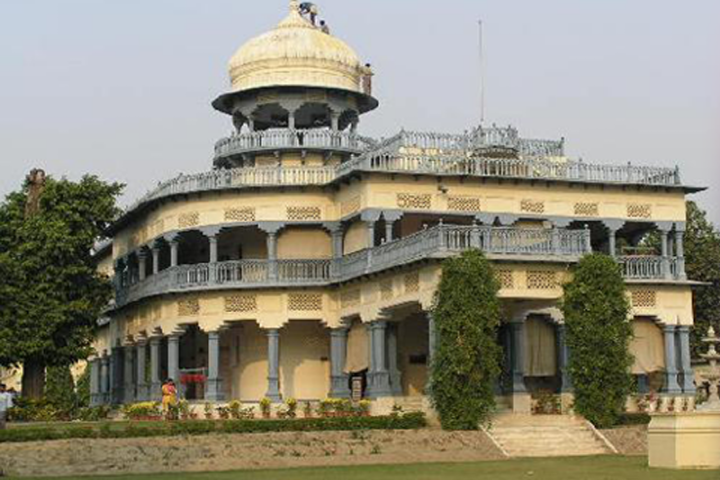
.jpg)
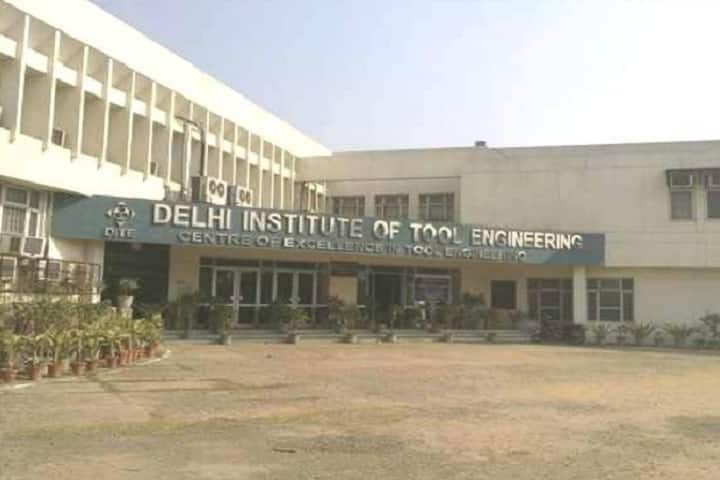
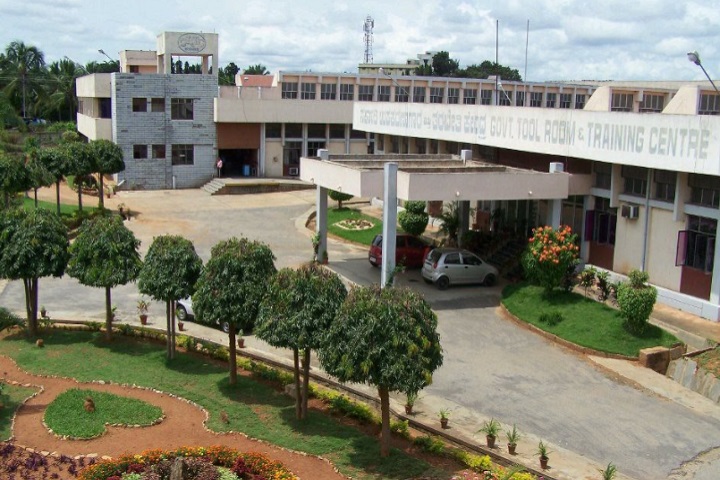

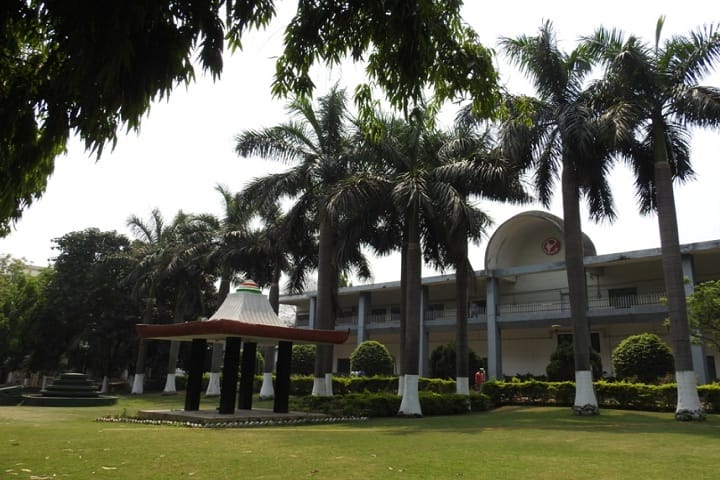

 Answer later
Answer later




